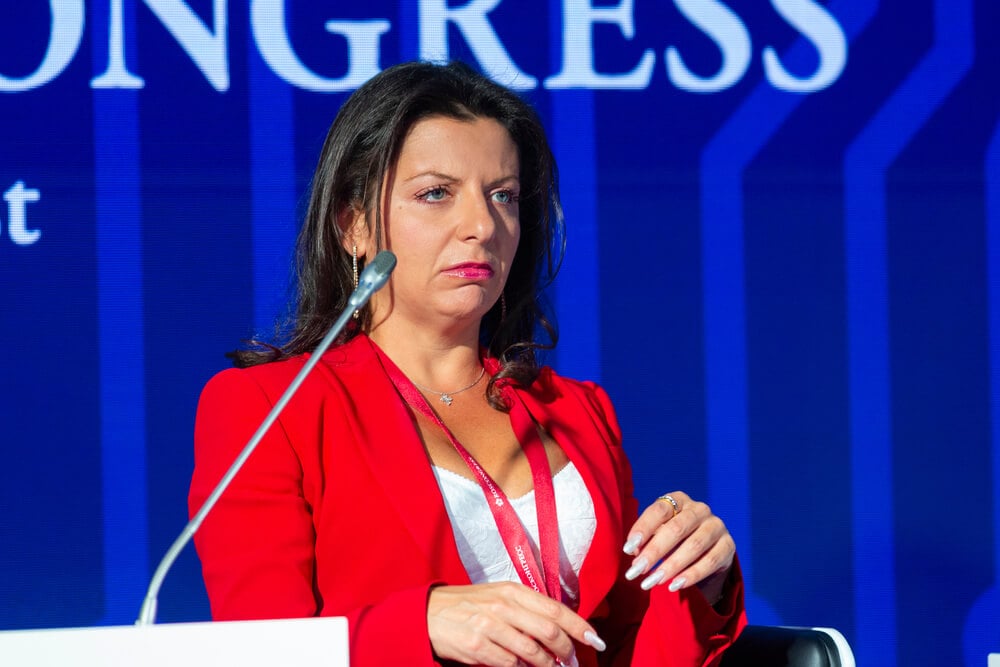Starting Monday, the European Union will apply a new mechanism of sanctions against Russia, targeting for the first time the leading people of its intelligence services and propagandists as creators of disinformation operations.
The chiefs of EU diplomacy will confirm the proposal to impose EU sanctions on more than a dozen individuals and three entities involved in hybrid operations and destabilising activities against the EU.
The fifteenth package of sanctions against Russia, which primarily focuses on restrictions regarding the illegal trade in Russian oil by using dozens of tankers from the so-called Russian "Shadow Fleet," will now include this new level of sanctions.
The aim is to implement the previously agreed-upon regime of sanctions against individuals and entities linked to the top echelons of the Russian state, who carry out complex operations to spread disinformation and false narratives on a massive scale against the EU and its member states.
These Russian actions directly link to its military operations in Ukraine and aim to weaken European solidarity with Kyiv by contaminating the European media space.
Primary targets
One of the primary targets of Russian influence in this respect is electoral processes across Europe. Disqualifying them as flawed and insufficiently democratic directly weakens the legitimacy of any European government and thus any decision it makes, including those regarding support for Ukraine.
At the same time, Russian state-backed operations in the European digital environment heavily promote forces that oppose support for Ukraine, mostly populists from the far right and far left.
The European Council adopted the new sanctions framework in October, which led to the final decision to impose sanctions on specific individuals and organisations for their malignant influence on European democracies.
Actors under the Kremlin's control target not only the electoral process but also economic activities
In this framework, actors under the Kremlin's control target not only the electoral process but also economic activities, services of public interest or critical infrastructure, and the instrumentalisation of migrants.
The recent presidential elections in Romania were the latest, but also the most vivid example of the conflict that the EU has been waging against Russia on its soil.
The Romanian Constitutional Court declared the first round of voting invalid, as the National Security Council presented ample evidence that the pro-Russian candidate Calin Georgescu received the most votes thanks to a massive disinformation campaign emanating from Russian "factories."
Sanctions against the media
Since the start of Russian aggression against Ukraine nearly three years ago, no European country has escaped the toxic influence of massive Russian operations to shape opinion and choose preferred candidates.
Although the European Union has quickly detected such attacks, classifying them as a threat to national security, its defence mechanisms have not yet yielded significant results.
Since the first days of Russian aggression against Ukraine, the EU has on several occasions banned certain Russian mainstream media from broadcasting on its territory, starting with Russia Today and Sputnik. Over time, the list has grown, and in May of this year, the EU suspended the broadcasting activities of four more Kremlin-controlled media outlets.
 Some of the most prominent players in the Russian propaganda machine have already been subject to personal sanctions by the US, the UK, and the European Union - Margarita Simonyan (RT)
Some of the most prominent players in the Russian propaganda machine have already been subject to personal sanctions by the US, the UK, and the European Union - Margarita Simonyan (RT)
However, it has become clear that the main stream of Moscow's toxic influence on the public in Europe runs below the level at which the traditional media operate, namely via social media and communication platforms.
Some of the most prominent players in the Russian propaganda machine have already been subject to personal sanctions by the US, the UK, and the European Union. The head of Russia Today and one of the most important creators of Russian external propaganda influence, Margarita Simonyan, has been under personal sanctions by the EU since February 2022, along with, for example, the then defence minister, Sergei Shoigu, and the Internet Research Agency, the Kremlin's agency for extensive manipulation in the cybersphere.
In addition, Ms Simonyan has been on the US Treasury Department's list of sanctioned individuals since September this year, along with her ten RT associates.
Expanding the circle for the application of sanctions
Propagandists like her or the television author Vladimir Solovyev, who has also been subject to EU sanctions from 2022, are unlikely to suffer any additional damage as a result of the new model of European sanctions against Russia.
The expected effect comes from the introduction of criteria for harmful hybrid and disinformation operations into the general framework of the European sanction mechanism against Russia
However, the expected effect comes from the introduction of criteria for harmful hybrid and disinformation operations into the general framework of the European sanction mechanism against Russia.
This criterion is defined as an area used for undermining the fundamental values of the EU and its member states, their security, independence, and integrity.
This effectively means a green light for the sanctioning of a large number of actors involved in complex Russian operations to undermine European democracies.